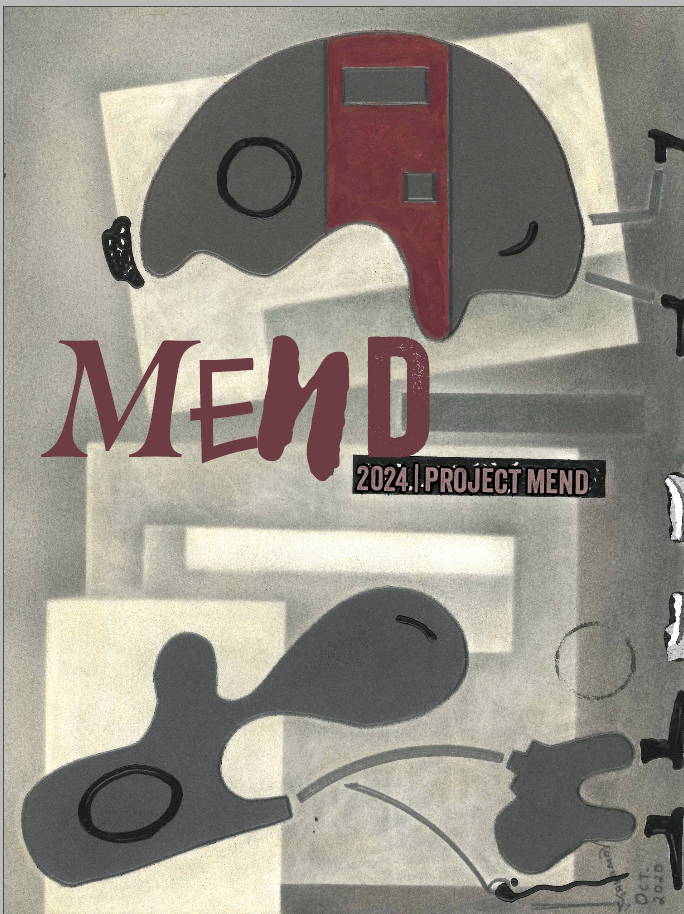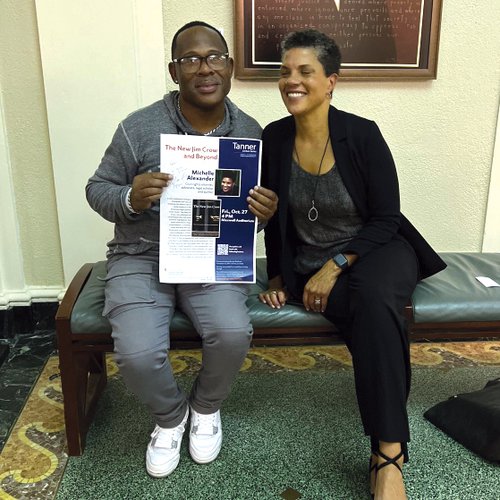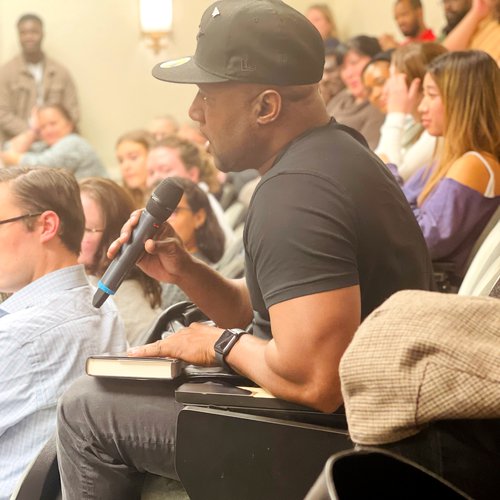
Editor's Note: The following article was written by Rachel Raposas, a senior majoring in writing studies, rhetoric and composition in the College of Arts and Sciences.
Months of dedication, creativity, and healing will come together on February 17 with the launch of the 2024 issue of Mend, a literary journal that celebrates the lives and creative work of those who have been impacted by incarceration or the criminal justice system. The launch marks a special unity between the Syracuse community and Syracuse University.
“It has been an absolute pleasure working with the 2024 cohort of Mend editors, all of whom have been impacted by the criminal justice system,” says Patrick W. Berry, a writing and rhetoric professor who serves as faculty advisor for Project Mend, the initiative that makes the journal possible. “Their perseverance despite the enormous obstacles facing formerly incarcerated people is truly remarkable.”
Project Mend creates a space for dialogue between writers, editors, and contributors to explore editorial processes and the humanities. Creative pieces tackle the realities of the prison system, navigating life outside, finding spirituality, and nurturing introspection. “This issue’s poems, short stories, and nonfiction are raw and powerful,” says Katherine Nikolau, a Mend editor and writing and rhetoric junior. “The range of narratives aren’t just about being in prison,” Nikolau explains. “In this issue, we have a science fiction piece, a love poem, and a piece about a father’s connection to his daughter. The diversity of perspectives really makes Mend stand out from other publications serving those impacted by incarceration.”
James Seibles, another Mend editor, values the community that the journal fostered and the ideas that arose from the process. “I’m so proud of the way that the editors came together to make this issue. I’m so inspired by them and their stories,” he says. “This is part of my journey, this beautiful experience.”
Though Mend focuses on the writing process, the healing process is just as important to all those involved. Michelle Alexander, civil rights activist and author of The New Jim Crow: Mass Incarceration in the Age of Colorblindness, spoke at Syracuse University this past October about the still-present crisis, and the Mend editors were there in full force.

“Reading Alexander’s book was one of the defining moments of…my rehabilitation, changing my perspective on how I see myself,” says Michael J. Willacy, a poet, author, and Mend editor. “It showed me that a lot of things were set in place for me to really lose.”

On February 7, the editorial staff will attend Clyde’s, one of Syracuse Stage’s recent productions, which follows a group of formerly incarcerated people now working in a sandwich shop as they attempt to rebuild their lives. Before the show, Berry, Nikolau, and Willacy will offer a lecture that explores the power of writing and the humanities to support justice-impacted people. Berry will also participate in a post-show panel on February 16.
The Mend 2024 launch party will be held at Syracuse Central Library’s Community Room on February 17 from 12 p.m. to 1:30 p.m. Attendees will hear readings about the crisis of mass incarceration, the hidden truth of life before and after prison, and the creative power of the humanities. Those who wish to attend remotely can register at this link.
Project Mend is made possible through collaboration with the Center for Community Alternatives and from an HNY Post-Incarceration Humanities Partnership, which is generously supported by the Mellon Foundation. Additionally, the project has been supported at Syracuse University by the Engaged Humanities Network, the Humanities Center, the SOURCE, the Department of Writing Studies, Rhetoric, and Composition, and a CUSE Research Grant.
